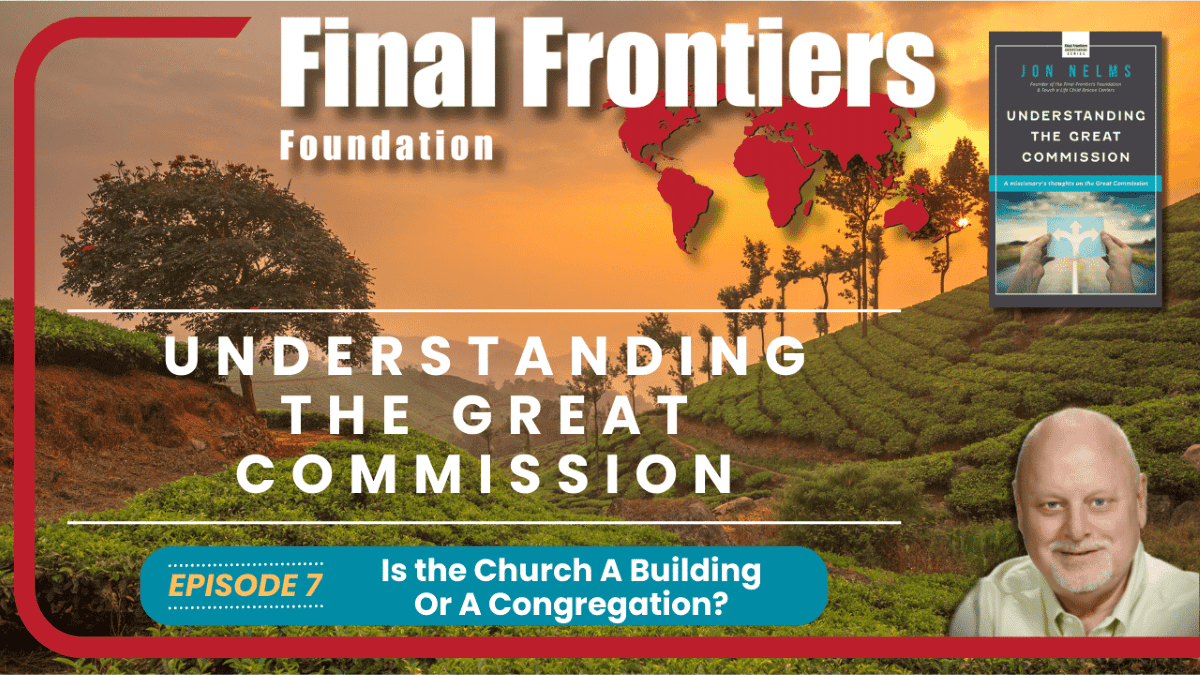UNDERSTANDING The Great Commission Episode 7
Our ministry of supporting national church planters is quite effective. Some consider our reported number of conversions and new churches planted astounding. In contrast, others dismiss them as unbelievable. I think the primary reason is they do not understand what a church is.
In our American culture, when we hear the term “church,” we think of a building. (Go on now, admit it.) We know that is not technically correct, but that image has become so ingrained in us that we even refer to the building as being the “church” or “God’s House.” We know full well that the church is not the building—but that our bodies are the temples of God. We don’t think of church as the worshippers but as a “place of worship” with property, a baptistry, pews, a pulpit, a choir (robes optional), songbooks, and even a parking lot, signboard, offices, and a fellowship hall with a full kitchen.
A church is neither a location nor a facility; it is a congregation. At Final Frontiers, we define a church as “a group of newly saved and baptized believers meeting together regularly for worship, under the leadership of a pastor.” The Bible refers to such congregations meeting in homes as “churches.” In each epistle, they have:
- A place to meet—someone’s house
- A pastor or several of them—to teach and lead them
- A people—the congregation of newly saved and baptized believers
Some churches, like Corinth, even had backslidden and unsaved participants meeting with and, at times, leading them. The church addressed in III John had a greedy and ungodly pastor who refused to allow the congregation to assist (national, traveling) missionaries and cast out members who did so despite his ruling. No church is perfect because no people are perfect—even if their building is.
Typically, our “churches” start in a home, on a front porch, in a field, or under a tree. In time, as needed, they acquire the physical trappings of what we in America call churches. Still, for the most part, they spend their tithes supporting their pastors, caring for the needy (both the saved and unsaved), and evangelizing the lost. And that’s why statistically (2024), they report a new convert every 10.9 seconds, and a new church started every 6 minutes and 41 seconds. How’s that for astounding?
Points to Ponder:
- I know you know, but honestly, don’t you often think of “the church” as the building where you worship? I do.
- What other misconceptions might we have that we will pass down to our children?
- Might it be wiser to emphasize facilities (and their costs) less and evangelizing and caregiving more? How can you accomplish that in your life?














